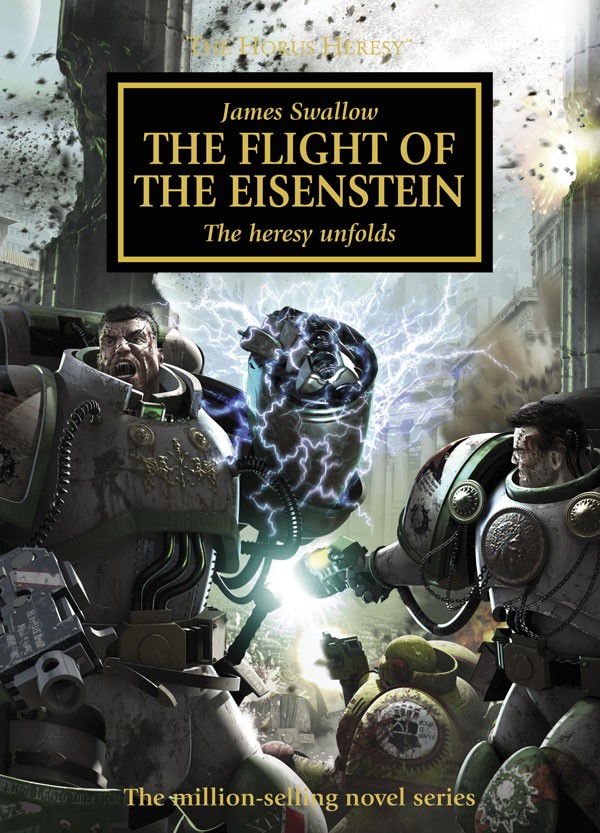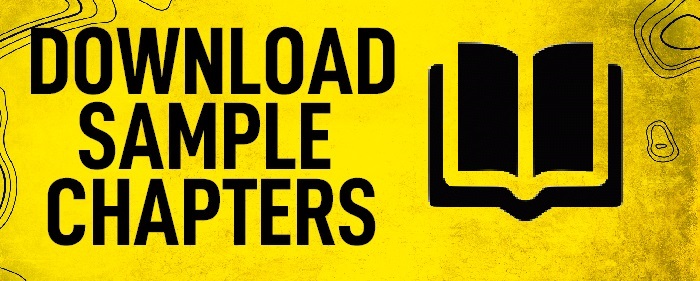It was somewhere in the Spring of 2006 when the suggestion was first made. Lindsey Priestley and Marc Gascoigne, my editors at Black Library, floated the idea that we were going to novelize The Horus Heresy.

Those of you in the know will understand what a big deal that was – but for readers unfamiliar with the grim, dark future of the 41st Millennium, I’ll elucidate: Black Library was (and still is) the publishing arm of Games Workshop, the creators of the colossal Warhammer 40,000 franchise, a universe built off a raft of massively popular tabletop wargames set in a pulpy, gothic sci-fi future. BL’s job is to create tie-in fiction for their intellectual property, and in ’06, I was in the front rank of their writers penning epic narratives of their clashing armies and larger-than-life heroes. A key part of the Warhammer mythos is the tale of an interstellar civil war fought between brother-champions and their vast legions of Space Marines, led by one Horus Lupercal – hence the name. Horus’s rebellion had never been fully detailed before, and it’s no exaggeration to describe it as the ur-myth of this vast saga. So when we decided to codify it in a series of novels, anticipation – and trepidation – was high.

Being invited to commit the events of that great conflict to prose was no small task. At the start, there were a few folks who worried it might not be a success, but I was never one of them. I always knew that the Heresy saga would be a hit with our readers, because like them I wanted to know the details of Horus’s treachery and the war that ultimately destroyed the dream of the great Imperium of Mankind. But I never could have predicted the scope of what we unleashed. At the start, some people thought it would be done in three books. Or maybe six. Or ten at the most. To date, over sixty novels and anthologies, plus audio dramas, novellas, short stories and graphic novels have told the tale, along with rulebooks that allow gamers to play the fiction as well as read it.
My first step into that huge narrative was The Flight of the Eisenstein, the fourth book in the series released in 2007, fifteen years ago today; I would go on to write much more in the series (the Nathaniel Garro audio dramas, the novels Nemesis, Fear to Tread, Weapon of Fate and The Buried Dagger, and more).

At the time I had a big task set before me; Dan Abnett, Graham McNeill and Ben Counter’s opening trilogy Horus Rising, False Gods and Galaxy In Flames were the rising tones of the overture of the Horus Heresy, each bigger in scope than the last – and I had to follow that. I knew there was no way I could top them, so instead I changed tack. Flight is much tighter in scope than its predecessors, and deliberately so. It’s the tale of one man, the legionary and Battle Captain Nathaniel Garro, as he follows a path of sworn duty from the most horrific betrayal by his brothers, to the realization that fate has a purpose for him. Garro’s personal journey mirrors the larger themes of the Heresy, as we see the same forces acting on him that are acting on the galaxy around him.
When Flight was first written and delivered, I had no grand plans for Garro beyond some thoughts about returning to him at the Siege of Terra, the final act of the Heresy saga – and I still have plans for that. But in 2007, I had no idea he would resonate so strongly with the Warhammer readership and fandom. Garro would come back into the ongoing narrative in a series of audio dramas, and the character took on a life of its own – which for an author, is immensely rewarding.
Fifteen years on from the release of this novel, a lot has changed – not just with my growth and experience as an author, but with Black Library, the Warhammer franchise and its fandom – and it remains one of my best-selling and most widely-read works, with (as I write this) approximately 400,000 copies in print in multiple editions across seven different languages. But by far the most rewarding thing that has come from writing Flight has been the amazing people I have been able to work with – not just my fellow Horus Heresy authors and editors, but artists like Neil Roberts, voice actors like Toby Longworth, and many more – and the readers who I’ve been able to connect with.
Thank you all for your support, and for making The Flight of the Eisenstein an enduring success.


